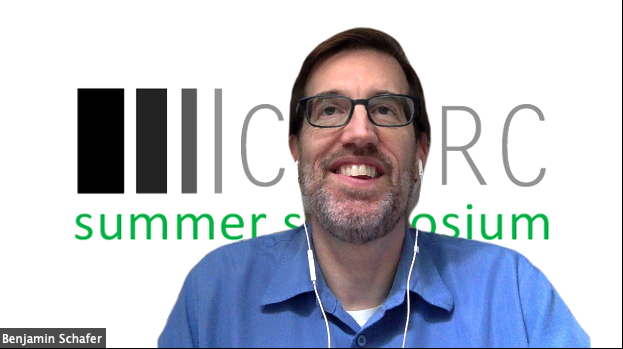Around 2010 I had the idea to create a research consortium around cold-formed steel. I thought we could combine all the CFS researchers around the U.S. and Canada and join together to have more fun, do more collaborative projects together, be a consistent voice in working with the American Iron and Steel Institute, and provide a platform for future generations of CFS researchers. The idea evolved a bit and came to life in 2013 as the Cold-Formed Steel Research Consortium (CFSRC), with annual funding from the American Iron and Steel Institute.
CFSRC achieved a great deal as a small organization. This news post from the CFSRC website provides a quick summary of the activities from 2013 to 2023. And indeed the website tells a story of a robust organization with a variety of activities and active research. However, in the Fall of 2023 the American Iron and Steel Institute (AISI) decided to exist active funding of building construction standards and research. If you dig into the reasons why you see all the modern drivers: consolidation, complex organizations, sustainability and more. The steel industry has been consolidating for decades and where AISI once had many mills working with it, today the number is much more limited – the need for an umbrella organization like AISI has thus evolved. AISI is a complex organization that itself interacts with large complex organizations – the value proposition for steel in building construction is harder to define than in other areas – – for example in automotive markets only a limited number of players exist, and the regulatory path for the structural materials is clear – – while for building construction every region and city has variants and players, and introducing new steels, etc. is a complex multi-year process. The message of building construction’s value proposition just did not make it up through the tangled webs of organizations in a successful manner. Finally, sustainability, also has pressured AISI – steel-making is resource intensive, but not every method is the same, and not all companies use the same methods – this creates a dynamic for umbrella organizations like AISI that can be hard to find an equilibrium within. In the end, the leadership at AISI could not see the value or need to maintain their efforts in building construction and cut the programs. For CFSRC this meant a loss of funding, and a loss of the entity that really helped shaped the CFSRC mission and vision. In the end, after conversations with all the participants, I decided to shut CFSRC down and work on whatever will evolve next.
It’s important to recognize that CFSRC was always about the people involved. With Deniz Ayhan Moen, who managed the effort, at the core and all of the investigators and their students making up the membership. I need to give special thanks to Kara Peterman, Hannah Blum, and Zhanjie Lie who volunteered a significant amount of time over the last several years, and to Cheng Yu, Matt Eatherton, and Cris Moen, who were there since day one of the effort. Everyone involved was great, and we had some fantastic fun with the student symposium, the researcher colloquium, and the investigator workshop. I am keeping a lot of the lessons learned from the effort in other activities I lead and participate within.
So with CFSRC now sunsetting what is next for CFS research? Are these down times? Far from it!
Personally, I plan on re-investing some of my time in my own CFS research group, and this page right here. I will also increase my volunteer time with with CFSEI, which has grown remarkably, and provides a robust forum for CFS engineers today. In addition, our annual stability conference at SSRC now becomes even more important as a means to share CFS research within the community. A lot of venues exist, and new ones will evolve, so I have no doubt that the sharing that CFSRC helped foster will live on in other forums. So long CFSRC, it was a fun 10 years, I am looking forward to the next 10 years of CFS research and whatever new organizations emerge.
-Ben Schafer
